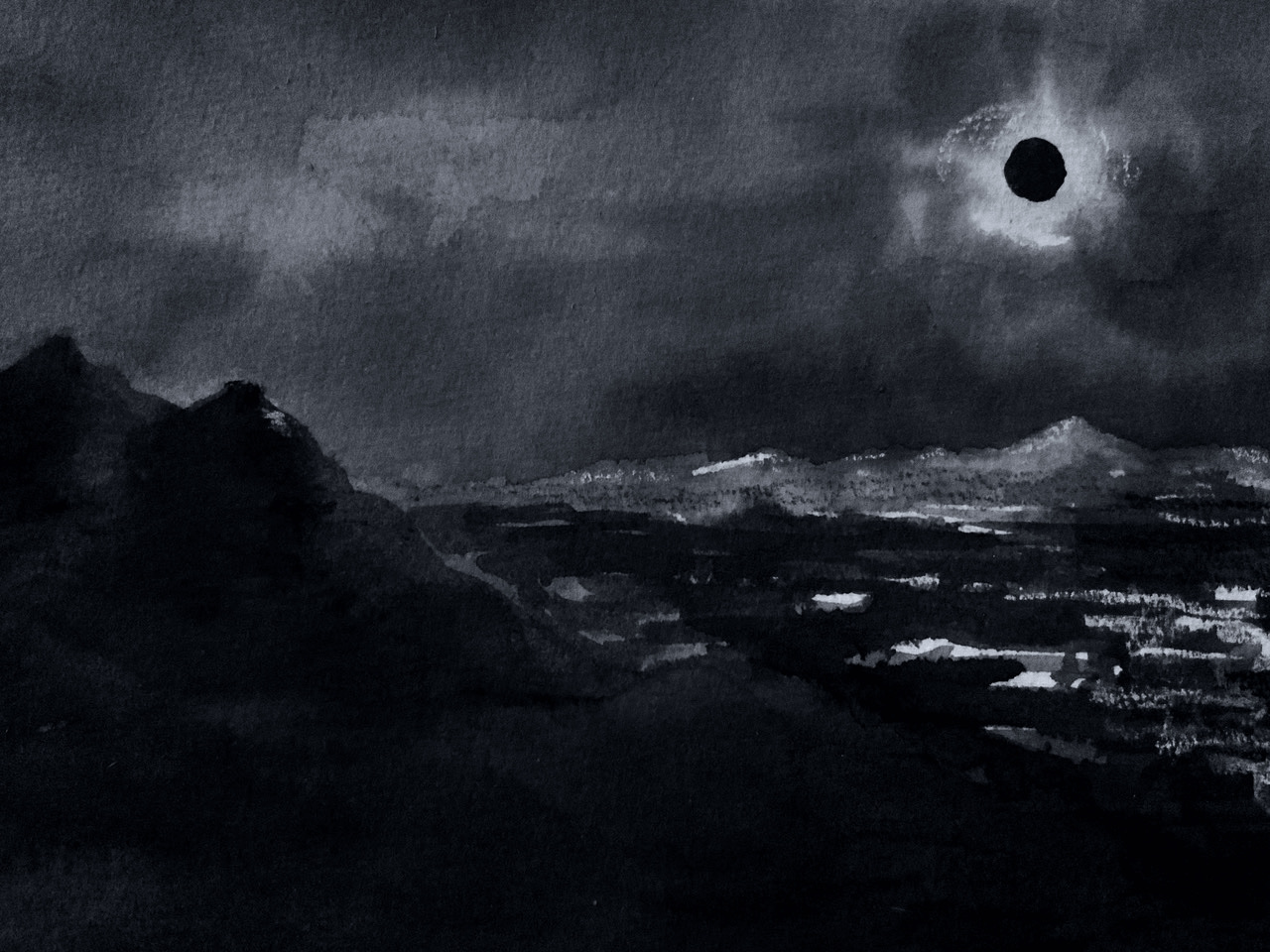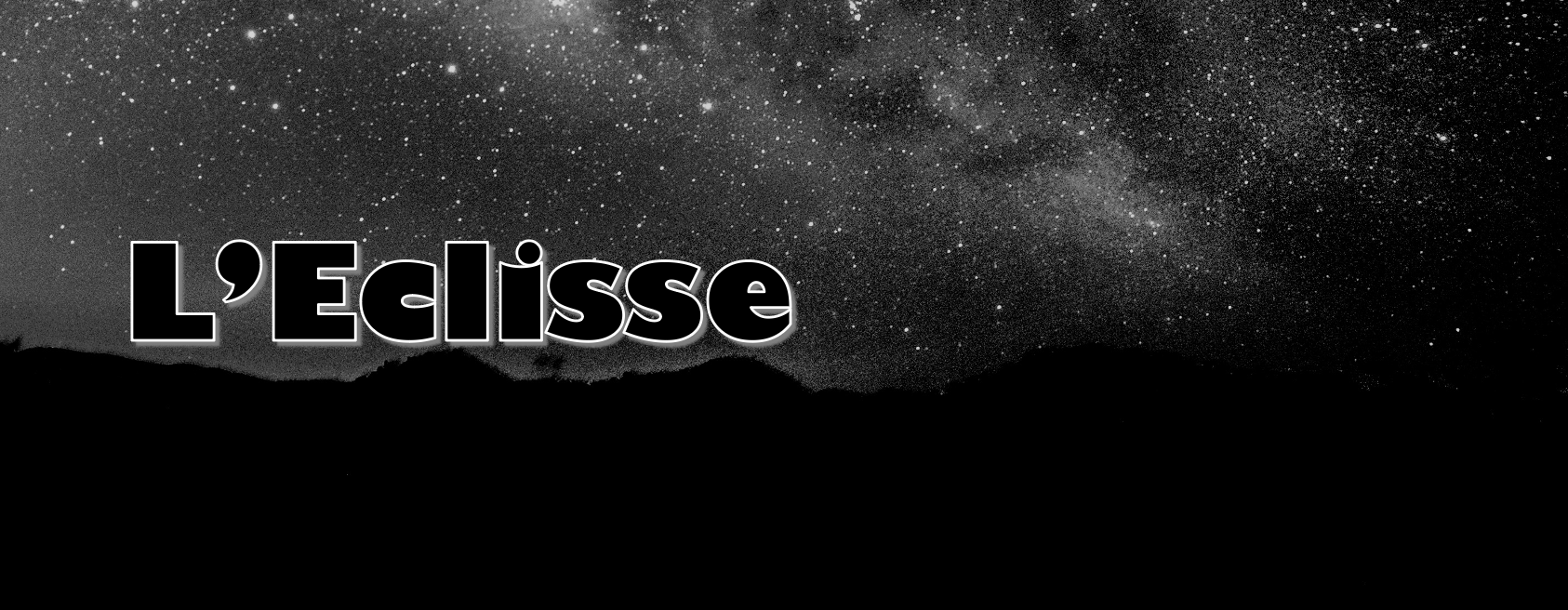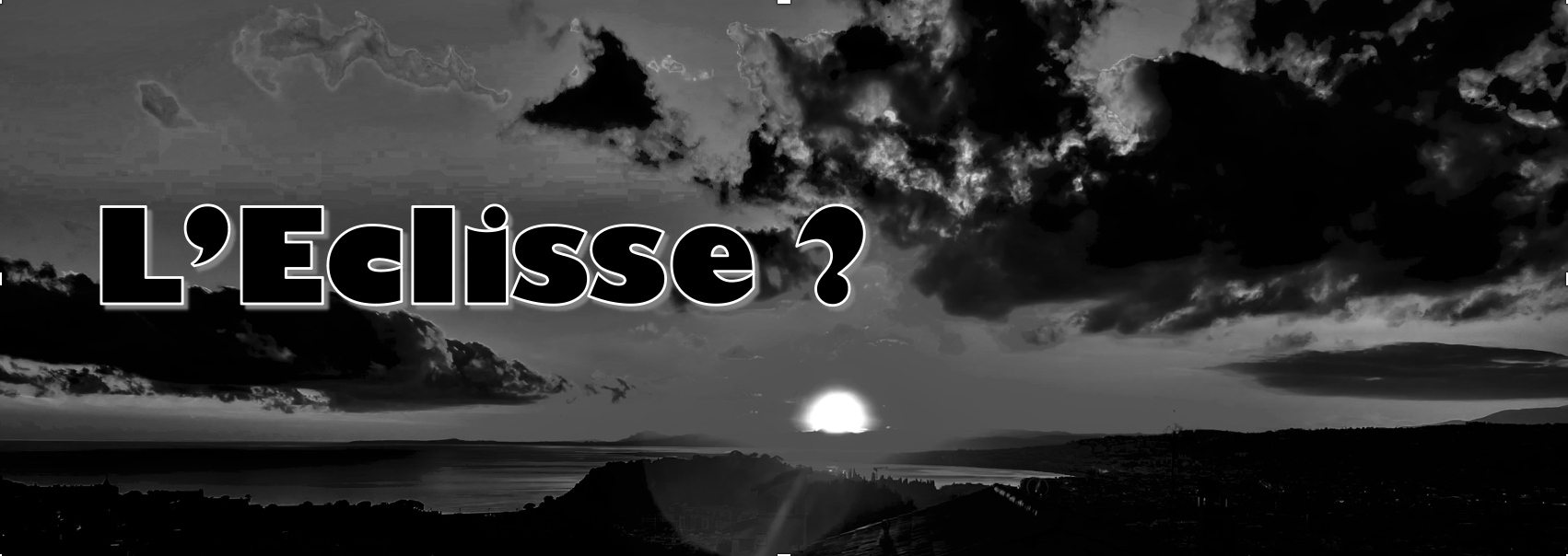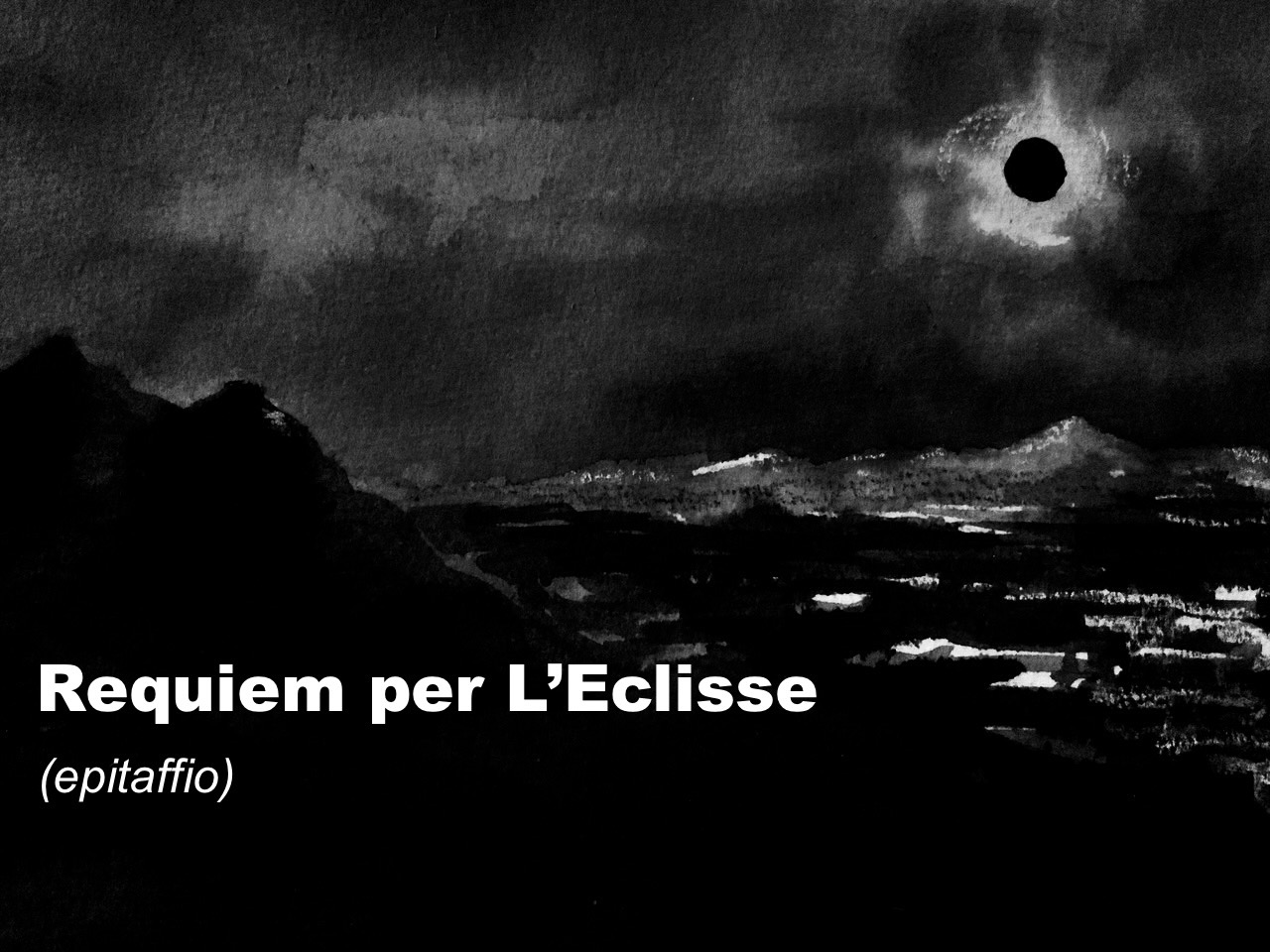SILVANO GREGOLI
Gaspare Lobino (pseudonym of Silvano Gregoli) took a step back and looked at his desk with a tired eye. The ancient behemoth had eight drawers, eight mouths full of notebooks of various sizes, scattered sheets of paper, old letters, aborted stories, skeletons of novels… The drawers were not all. Under the desk lay several boxes of the same merchandise, squatting and threatening. At eye level, on the shelves of the hanging bookcase, were as many binders, each with its burden of thoughts.
Many years had passed over these papers. There had been sediments, resurgences, reworkings, reversals. The mass of paper had lost not only its chronological binding but also its coherence. The various themes had merged and blurred into a chaotic chatter. The whole thing no longer meant anything. And yet, in the depths of that office, an unmentionable secret continued to ferment: for more than sixty years, between ups and downs, between fidelity and transgression, between enthusiasm and discouragement, Gaspare Lobino had been desperately trying to publish a book entitled L’Eclisse. He himself could not explain the reason for the capital E: perhaps the title had come to him in a dream.
Sometimes he had even come close to success. He had even published something, but he had always had to deal with intractable publishers. « No, that title doesn’t fit » he was told. Okay: the syntax was less peremptory, the tone more good-natured. But the result was always the same: first a suggestion, then, in stages, the imposition of another title.
The first serious attempt was made in 1990, on the eve of the publication of a collection of short stories set in a pretty Piedmontese town. The first lines of the preface read:
The only one of these stories that I had really decided to tell for years was that of the total solar eclipse of 15 February 1961. I had promised it, I had sworn it that day, when I came down from the Refuge: those two minutes of eclipse on the Trucca – I told myself – would not be forgotten.
Gaspare Lobino had no doubt about it: the title L’Eclisse, in fact, appeared in large letters on the cover of the manuscript.
The publisher, a childhood friend, did not say no immediately. But he didn’t say yes either. The long work of Gaspare Lobino was about to begin.
The publisher friend began to move his pawns cautiously. The book had to be published before Christmas, he said. The book would become a gift to friends who would then buy it to give to other friends. Of course, the title was beautiful, but also a bit negative. An eclipse remains a lack, an absence, a black sun in a way. Besides, a book is not only sold for its content, but also for its author. In this particular case, he said, the most “saleable” aspect of the author was his long exile from home, from his beloved city, from its hills, mountains, skies, suns… From this remote place, the author looked at Mondovì – and therefore at all the potential buyers of the book – with a poignant melancholy. They would all have bought it. The book would have become a powerful antidepressant. “There are some who envy us, there are some who are worse off than we are” they would have said. “Some people would like to be in our shoes. We are really lucky! Gaspare Lobino is right: our country is really beautiful!”
Apparently, the publisher seemed willing to negotiate, but, in reality, the choice was already made. The title of the Christmas present was in fact E laggiù, Mondovì and it ended in a publishing triumph, albeit on a local scale. Gaspare Lobino had lost his first battle in favor of L’Eclisse. Fortunately, he was only fifty years old and still had a good slice of life ahead of him. He would have had other opportunities. He would have presented his case better.
The second chance came fourteen years later. A publishing house in Turin, specialized in the “mountain” sector, asked him to compile a small volume of his stories with the Alps as a backdrop. Gaspare Lobino set to work: he turned over and over the mass of papers that choked his desk, chose about twenty stories, old and new, reworked them, classified them, gave them a coherent form and, at the publisher’s request, wrote a short text for the back cover. This was a unique opportunity and Gaspare racked his brains to give his Alpine stories the form of an eclipse. He sat down at his desk and wrote:
Take a very young man. Inoculate him with a malignant and tenacious mountain virus. When the young man falls ill with an incurable love for the mountains of his country, exile him for twenty years to a flat, grey country with no mountains, no hills, no wind, no snow, no sun and no moon. There he will be deprived of the third dimension and forced to see and think horizontally. Then he will be given an additional sentence to serve in even more distant countries, on distant continents. In all, it will be thirty-seven years during which the world will slowly pass before his mountains, obscuring them all.
Gaspare Lobino read the article again. The sentence: «… it will be thirty-seven years during which the world will slowly pass before his mountains, obscuring them all» was a strong reminder of the mechanics of a total mountain eclipse lasting thirty-seven years. The list of possible titles was limited, and Gaspare decided to present them all on the cover, one below the other and in the same type size.
The first title was explicit: Eclisse totale di monte. Then came, as an alternative, a more ambiguous and secret title: La lunga eclisse. The combination of the two titles gave La lunga eclisse di monte. If, on the other hand, the publisher wanted a more concise title, the author was happy to suggest the classic L’Eclisse, which in the end was the one that presented itself best.
Publishers must have a very similar genetic make-up to each other. In fact, the new publisher behaved like the previous ones. He said that all the titles proposed were good and, in the end, quite similar. He agreed with the author about the slight preference for L’Eclisse, but, as he said this, his gaze was directed downwards at an angle. He concluded that they would have to think about it some more, both of them. Who knows, perhaps an even more evocative title would have been found.
Two weeks passed. The revision of the text continued at a steady pace. Only the title was missing. So, when Gaspare Lobino saw the editor’s lips pronounce the words Alpi liguri primo amore, he thought he had misunderstood.
«You are obviously talking about the title of the first story» he said, as a thread of anguish began to creep into his chest.
«This is a very common practice. The title of the first story becomes the title of the book. »
«So, you propose to title the book: Alpi Liguri primo amore e altri racconti. »
«No, no. Alpi liguri primo amore and that’s it. It’s a very nice title, you’ll see that you’ll like it, you’ll get used to it. »
That day, for Gaspare Lobino, a first love was born and an Eclisse died. Of course, at sixty-four, he still had a good slice of life ahead of him; he would have had other opportunities, he would have presented his case more convincingly. But the slice of life ahead of him had already lost a good slice of years.
Then it was the turn of a novel. The plot covered three hundred and fifty pages and took place in an increasingly dark context. The image of a total eclipse of human lights was perfectly adequate. The cosmic darkness had definitely “eclipsed” the light of man. The central passage of the book, the dramatic heart of the whole novel, was in fact no less than:
For years Mauro has been waiting for this moment.
Now it’s here.
Here he is: he is sitting in the stone “armchair”.
There: his eyes are wide open.
There: the sky is full of stars up there.
But below, at his feet, as far as the eye can see, the plain is black.
Desperately black.
Gaspare reread the passage with satisfaction: more Eclisse than that! You felt like you were there. You could even feel the shiver of awe that always accompanies great events in nature. But an eclipse is a transitory phenomenon. To justify the long-awaited title, it was therefore necessary at some point to bring the light back. And so, in the middle of the gloomy plain, Gaspare made a fire shine:
But! But! That bright spot! That light! That shining light! There, in the direction of the Orsiera! It looks like a fire… It is so far away that it must be a big fire. At the beginning of the night, it wasn’t there. Someone must have lit a fire. Who knows how long it has been burning! He had fallen asleep.
In those few minutes Mauro saw what he had never expected to see. But then it was only an eclipse! An eclipse that lasted a few years! Of course, it will take time, such a long eclipse will have done a lot of damage, but the human lights are coming back on…
“An eclipse that lasted a few years!” The leitmotif, the underlying theme that had never left him! Gaspare Lobino was delighted. He had in his hands an exciting thriller, perhaps it would become a bestseller, perhaps it would be made into a film. And the title would be L’Eclisse. This time he would fight. If the publisher didn’t accept it, he would withdraw the manuscript. But no publisher would dare: the title was an emanation of the text. Without the title, the book would lose much of its appeal.
Six months later, the novel was published under the title Xeno, and it was a moderate commercial success. Gaspare Lobino was pretty satisfied and had to admit that publishers see things that authors do not. He had once again made a mistake by pushing his beloved title: L’Eclisse.
Yes, of course, he still had a good slice of life ahead of him, even if it was with many years less. Now, on the strength of his three publications, he could impose on a future publisher the whim of his favorite title.
***
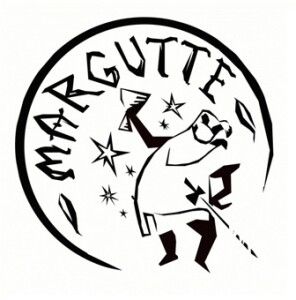 Another chance came with the discreet launch of an online literary magazine with a vaguely esoteric title: Margutte. The online magazine had been launched in 2013, in the same pretty little town where, twenty-three years earlier, Gaspare Lobino’s first paper book had been published. “Maybe I’ll have better luck with Margutte” he thought. “Online literary magazines are more casual than the established publishing houses. This time I will publish the story of my youthful eclipse with its original title.”
Another chance came with the discreet launch of an online literary magazine with a vaguely esoteric title: Margutte. The online magazine had been launched in 2013, in the same pretty little town where, twenty-three years earlier, Gaspare Lobino’s first paper book had been published. “Maybe I’ll have better luck with Margutte” he thought. “Online literary magazines are more casual than the established publishing houses. This time I will publish the story of my youthful eclipse with its original title.”
The first contacts with the magazine’s editors were rather cold.
«What do you have to offer us? »
«A text entitled L’Eclisse. »
«What is it about? »
«It’s an account of the total solar eclipse of February 15, 1961. »
«What was so special about this eclipse that you’ve come to tell us about it now? »
«Well… I was thinking that in a few weeks… it’s its anniversary. »
«Its 53rd anniversary, isn’t it? Tell me instead: is this an unpublished story? »
He expected more flexibility from an online magazine. To avoid any misunderstanding, he decided to play it straight: «No, the story has been published before. But only twice. In two different books and with different publishers. It’s a very good story. »
«I hope so, for your sake. Our magazine only publishes very good texts. In any case, send it to us, we’ll submit it to the editors. »
The frown was proud. The new born magazine online had clearly passed its launch stage.
In the days and weeks that followed, Gaspare Lobino had managed to infiltrate some members of the editorial staff. He learned that the team was almost entirely made up of high school teachers, writers and poets themselves, unyielding guardians of the language of Devoto-Oli and Sabatini-Coletti. Worse: rumours of dissension over the acceptance of his text had also reached him. The disagreements were not so much about the quality of the text – considered old-fashioned but acceptable – as about the title itself. Indeed, it appeared that the Italian lemma for “eclisse” was not eclisse, but eclissi. In this case, the much-coveted fetish title: L’Eclisse, would have contained a blue pencil error.
Gaspare Lobino felt briefly dizzy. “We were still missing the lemma”, he thought.
He had no idea what a lemma was. So, he clicked on Google in search of a definition. He found several, each more incomprehensible than the last, starting with Wikipedia:
In linguistics, and more particularly in morphology, a lemma is a canonical form of a word. The relationship between lemmas and words is particularly important in highly inflected languages, such as Czech (but also Italian).
Needless to say, the mystery of the lemma remained. However, it was no joke: if the story were true, he could never have published L’Eclisse.
Gaspare Lobino was a stubborn writer and did not immediately abandon the research. On the contrary, he delved into what is known as “advanced research”. He discovered in the Treccani that there are different types of lemmas; that the lemma, also called superscript or entry, was not to be confused with the word or lexeme, as it was a «…graphic unit that constitutes the heading of an article or entry in a dictionary or encyclopedia. »
He was groping in the dark. But what convinced him to stop his search was a discovery that left him dumbfounded. The abstruse pages he had unwisely plunged into – bristling with lemmas, lexemes, phonemes and sememes – were all full of references to scholarly works written by Professor Gian Luigi Beccaria. Mamma mia! The illustrious scholar was, of course, a fellow citizen of Gaspare, but over the years he had become such a well-known name in the cenacles of world linguistics that the mere mention of that name aroused great reverential fear in readers.
 Suddenly Gaspare Lobino felt very small. Misspelling a word in the title of a book on sale in the city of the author of the Dictionary of Linguistics and Philology, Metrics, Rhetoric, was like putting the writer’s key under the door. Professor Gian Luigi Beccaria would have swallowed it like a whale swallows a sardine. Gaspare Lobino would never be heard from again. He was exhausted. Before falling asleep, he still had time to send an e-mail to the editors of the magazine informing them that he would withdraw his manuscript for health reasons.
Suddenly Gaspare Lobino felt very small. Misspelling a word in the title of a book on sale in the city of the author of the Dictionary of Linguistics and Philology, Metrics, Rhetoric, was like putting the writer’s key under the door. Professor Gian Luigi Beccaria would have swallowed it like a whale swallows a sardine. Gaspare Lobino would never be heard from again. He was exhausted. Before falling asleep, he still had time to send an e-mail to the editors of the magazine informing them that he would withdraw his manuscript for health reasons.
Gaspare Lobino sank heavily into his office chair. He squinted and breathed heavily. He knew that in the eight drawers, in the boxes at his feet, in the files on his head, there were thousands of fragments of L’Eclisse. All he had to do was line them up and add a logical link. He looked at the whole volume of the desk. From this gangue of paper, he would give birth to L’Eclisse: lemma or no lemma, professor or no professor. This was his last chance.
He closed his eyes and imagined the immensity of the work. Several narrative lines crossed his mind and intersected. It would be a nimble, vivid and powerful work. In front of him, thousands of small players armed with the most disparate instruments stood, huddled together: violins, oboes, clarinets, bass drums, hunting horns, Celtic harps, baroque instruments of all kinds, electronic organs, trumpets, bassoons, harmonicas, diatonic accordions, violas d’amore… He would be their conductor, and the orchestra would play a gigantic, unheard-of symphony, perhaps not even earthly: L’Eclisse by Gaspare Lobino. A literary work so beautiful that it could have been mistaken for a musical work.
Slowly he sank into a deep reverie. He let himself be lulled by the applause. He fell asleep. In the dream he saw the future Great Editor himself.
Future Great Editor: «Have you ever thought of a title? »
Gaspare Lobino: «Well, in my opinion, the one in the manuscript would be perfect».
Future Great Editor: «L’Eclisse? What does this have to do with your text? »
Gaspare Lobino: «I talk about it in several places, I talked about it at length in the first few pages, and then I tried to keep a common thread…»
Future Great Editor: «A very tenuous thread! You talk more about trains, soldiers, sharks and snakes than eclipses».
Gaspare Lobino: «What do you think of Diario di uno scrittore di eclissi? »
Future Great Editor: «Di… di… di… Three di’s in six words. It sounds bad. And what’s more, your text is not a diary, it’s ramblings».
Gaspare Lobino: «Very well. Why not say: Divagazioni di un scrittore di eclissi».
Future Great Editor: «The di’s are always three; and in truth you are not a writer of eclipses, you are a writer of ramblings. The real title should be: Divagazioni di uno scrittore di divagazioni … But, at this point, with four di’s in six words, it would be enough to put: Divagazioni».
Gaspare Lobino: «I had another idea. Of all the ramblings about the eclipse, the most evocative is certainly – you’ll agree – that of Sam, my beloved dog, who died a few years ago and who has been circling the moon ever since, causing lunar micro-eclipses that can be seen through a good telescope. Why not: Piccole eclissi di luna or even Micro-eclissi di luna?
Future Great Editor: «I was afraid. For a moment I thought you were going to suggest something like: Eclisse di cane, or Eclisse canina… Listen to me: let’s think again and again. Something will come of it…»
Gaspare knew what would come out of it: a title that would not extinguish his ancestral need for L’Eclisse. So, he had to start again, try another time with another book, because he knew that he would have no peace until he succeeded in placing this title on the cover of a small volume of about 300 pages, with his name on it and a price of about 18 euros. As for the cover illustration, he had no clear idea. Of course, it should have been an eclipse – or a metaphor for an eclipse – but modern graphic designers had a lot of imagination and could have come up with another solution.
In any case, it was necessary to move quickly: the slice of life he had left was rapidly diminishing. He could not die before publishing L’Eclisse.
In a flash, he thought of his death. Wasn’t she what he had been pursuing all his life? The eclipse par excellence? Could he have given his death the form of an eclipse with a capital E and accompanied it with an epitaph, entitled L’Eclisse, which would have avenged him of all past humiliations? Of course, this time at least, the epitaph would have been published under its real title. The publishers would not have had the audacity to violate his last wishes. The ultimate battle, posthumously, would have been won by him.
He woke up with a start. The huge desk was still there, rich, inviting, leering. He was dying to tell. He had always wanted to tell. At that moment, he was standing at the springs of the tales, streams that had travelled a few meters to dry up immediately, to disappear among the stones of the ground. He would have liked to nestle there, to tie up the threads of all the dead eclipses and their ghosts. Before his eyes, shattered as in a schizophrenic kaleidoscope, were the seeds of innumerable eclipses. If his death was L’Eclisse par excellence, his life was nothing more than his waiting.
At last, he held the perfect title in his hand: Aspettando L’Eclisse, waiting for the Eclipse – he thought – and a wave of satisfaction swept over him. The cards were all right. He could have written anything; everything would have easily found its place under this title.
The next day, Gaspare Lobino met his first editor in the street, a childhood friend, one of his own.
«Hello, how are you? Are you still writing? »
«Of course, I am.»
«Very well. And what are you writing? »
«Aspettando L’Eclisse. »
«Still? But haven’t you got tired of waiting for it yet? »
He had said this with such brotherly consternation that Gaspare Lobino shivered.
Sometimes it doesn’t take much to change a fixed idea, even if it has been fixed for sixty years. No, he won’t succeed. He’s sure of that, now. He has lost too many battles, all of them. He will never see his name and surname on the cover of a book of about three hundred pages, costing 18€ and entitled L’Eclisse. Never again.
***
In January 2021, in the midst of the Covid-19 pandemic, Gaspare Lobino, then 81 years old, publishes a 400-page novel. A world-book full of everything, with countless eclipses and metaphors of eclipses. Unfortunately, due to an unusual shyness, he did not even dare to present his new publisher with the title that had crossed his mind sixty years earlier and which he had never managed to place on the cover of a book. So, this new book was born, quietly, with a title consistent with the text: Montagnes imaginaires. A correct title, of course, but one that could not extinguish Gaspare’s senile desire for L’Eclisse, which still torments him.
At this moment, Wednesday 15 February 2023, at 8:34 a.m. sharp, on the sixty-second anniversary of the most important eclipse of his life, Gaspare Lobino is not yet dead. Tired, morose and distraught, he is still alive but not tamed.
He is still thinking. What is he thinking about? The eclipse of 15 February 1961? The «…sudden darkness that fell over the sunlit mountains and forests below»? The «…cries of terror that sprang from the roots of a small solar world, struck down at eight o’clock in the morning by a horrible swarm of stars»? Those two interminable, gloomy minutes during which «…all the valleys below resounded with “Oooohhh!” and “Uuuuhh!” which supported and reinforced each other»? The «…furious cries that filled the woods and valleys with anguish, and merged with the long barking of the dogs»? Indeed: «Who had gone to explain this to the dogs? They were there, in front of the hut, basking in the sun, when suddenly the wind had risen, the day had turned into night, and Toni had begun to howl in a voice… A voice they had never heard before, a voice like the howl of a dog…»
He thinks and remembers. Distant memories, from school. The teacher who quoted examples of old obscure proverbs, and he remembers the impression made on him as a child by the aphorism: «The dogs bark and the caravan passes…». The “caravan”. What caravan? Why was it passing by? Where was it going? Why were the dogs barking? And the teacher: «The “caravan” is a metaphor, and the barking dogs are also a metaphor. The meaning is that of something dark happening nightly, inexorably, ineluctably, predestined, unaffected by any protest, totally devoid of common sense».
He thinks of the total solar eclipse of 15 February 1961… The moon passed in front of the sun and the dogs in the woods had all started barking. So, the moon had asked the sun: «What should I do? Shall I go on? » And the Sun: «Don’t worry about them; just look and pass by… You are one of the “eternal rounds” …»
The dogs bark and the caravan passes…
Poor Gaspare Lobino. He has seen eclipses all his life. Recently he has also been seeing them at night, which in itself is not a good sign.
The swan song? The last signs of life?
He has finally understood it, he has finally accepted it, he has finally resigned himself to it. There will be no more L’Eclisse. All that remains for him is the epitaph. This supreme battle, posthumously, he will win.
But he still had to write it, the epitaph. Would he have had the strength? And what title should he give it? A title that would cover the duration of a life… a title that would correspond to the end of a life… The seventh seal? Birth, youth, old age and death of an Eclipse? L’Eclisse?
One night, during a particularly ferocious insomnia, the final cover, title and subtitle appeared to him like a flash. There they were, beautiful, brilliant, unequivocal:
Yes, he knew it: the title was doubly funereal. A real tombstone. But the most beautiful stories have an end, and so much the worse if the lemma was not the right one: Professor Gian Luigi Beccaria would have taken pity on him.
As for the text of the epitaph… Gaspare Lobino turned and looked at the eight tortuous and painful pages he had just written.
He closed his eyes and laughed: more epitaph than that… one dies…
(Cover image: watercolour by Maddalena Poleggi)
HERE the french version
HERE the italian version


